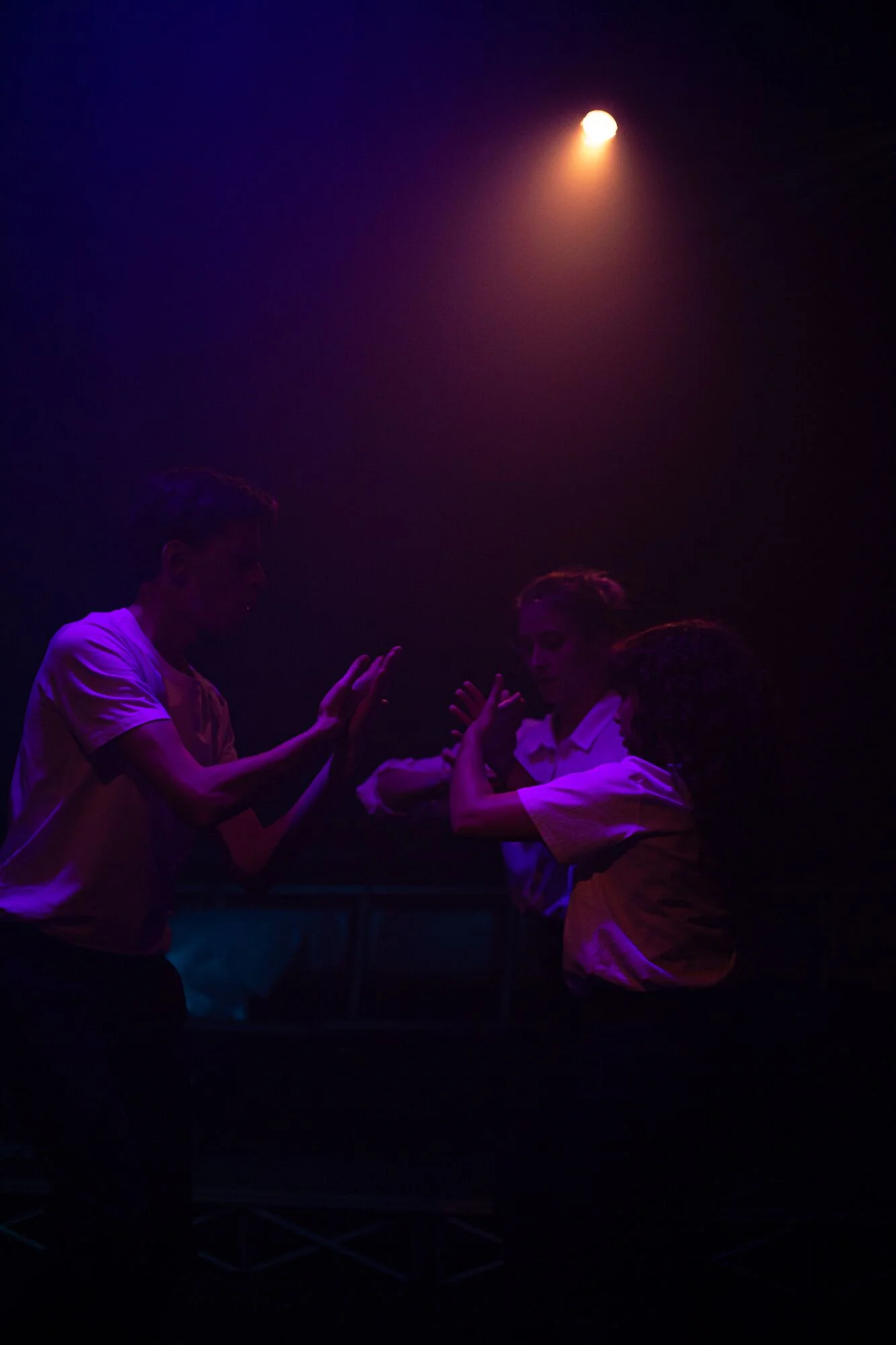4.5 stars
Floor Thirteen, directed by Marshall Stay and written by Elise Wilson, is a psychological thriller that explores the malleability of memory and the power of the mind to create reality. The audience is asked to watch, listen and interpret the truth of a story that is constructed by an unreliable narrator and enacted within a physical representation of the mind’s process of rationalisation.
Image courtesy of Marshall Stay
The play begins with its protagonist, Phoebe, finding herself trapped in an elevator after an office party.
Phoebe’s confinement to the tiny space is masterfully staged and the audience feels immediately the strangled sense of panic that threatens to overwhelm her. A male voice comes through the speakers assuring Phoebe that she will be rescued and, in a bid to keep her calm, the two begin a conversation.
Outside the elevator, however, shadowy figures circle the darkness, their eyes intent on Phoebe in the chamber on centre stage. They move slowly around her, as though ghosts waiting to be given form. When Phoebe begins to recount the events of the party, the shadowy figures become animated, re-enacting her memories in exaggerated mimicry to lead the audience through Phoebe’s constructed reality.
The male voice on the speaker challenges Phoebe’s recollections, forcing her to revisit key moments of the past and continuously reinvent her version of the truth.
Through repetition and interrogation, Phoebe’s memories ultimately unravel to reveal the disparity between the story she wants to remember and the truth of the night’s events.
The pacing of Floor Thirteen is sharp, building the intensity in carefully measured increments. The audience is pushed to reconcile the story being told by Phoebe and the discrepancies and contradictions being enacted in the mental-scape around her. Time—which stops, reverses and glitches—is visually represented by the frenetic actions of the figures as they transform with each iteration of Phoebe’s story from silent and exaggerated caricatures, to concrete memories that speak the truth.
The strength of this play lies in the depiction of Phoebe’s mind, in the way that the real and the imaginary, the concrete and the ephemeral, are inverted.
Phoebe’s walled chamber in the centre of the stage represents the physical world, while outside in the dark spaces of the theatre the inner workings of her mind are made visceral and confronting. Her thoughts roam in space while her physical self remains confined, and the contradictions, schisms and rationalisation of the truth are made tangible through the dramatic use of sound and lighting.
Floor Thirteen is a chilling experience. This is a play that couples intelligent writing with dynamic and enthralling staging to envelope the audience in a psychological and physical experience.
Tickets available from The Blue Room Theatre.
SUZANNE MOORE

